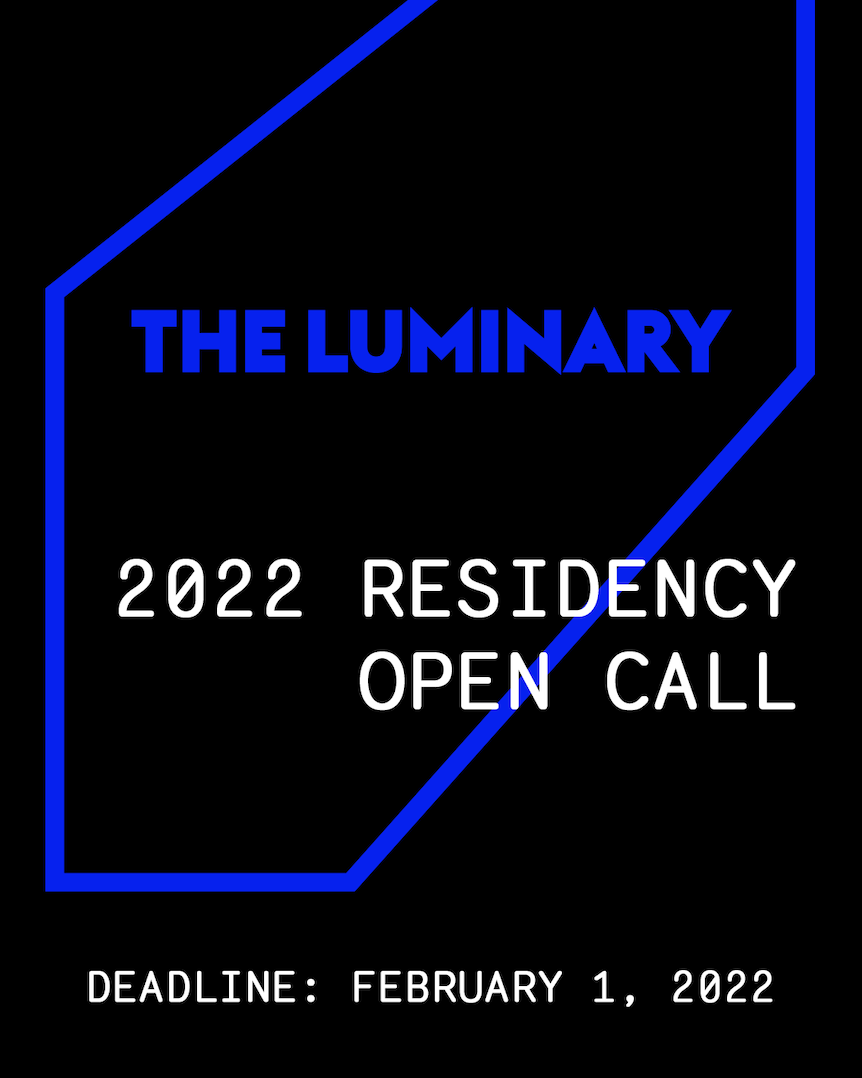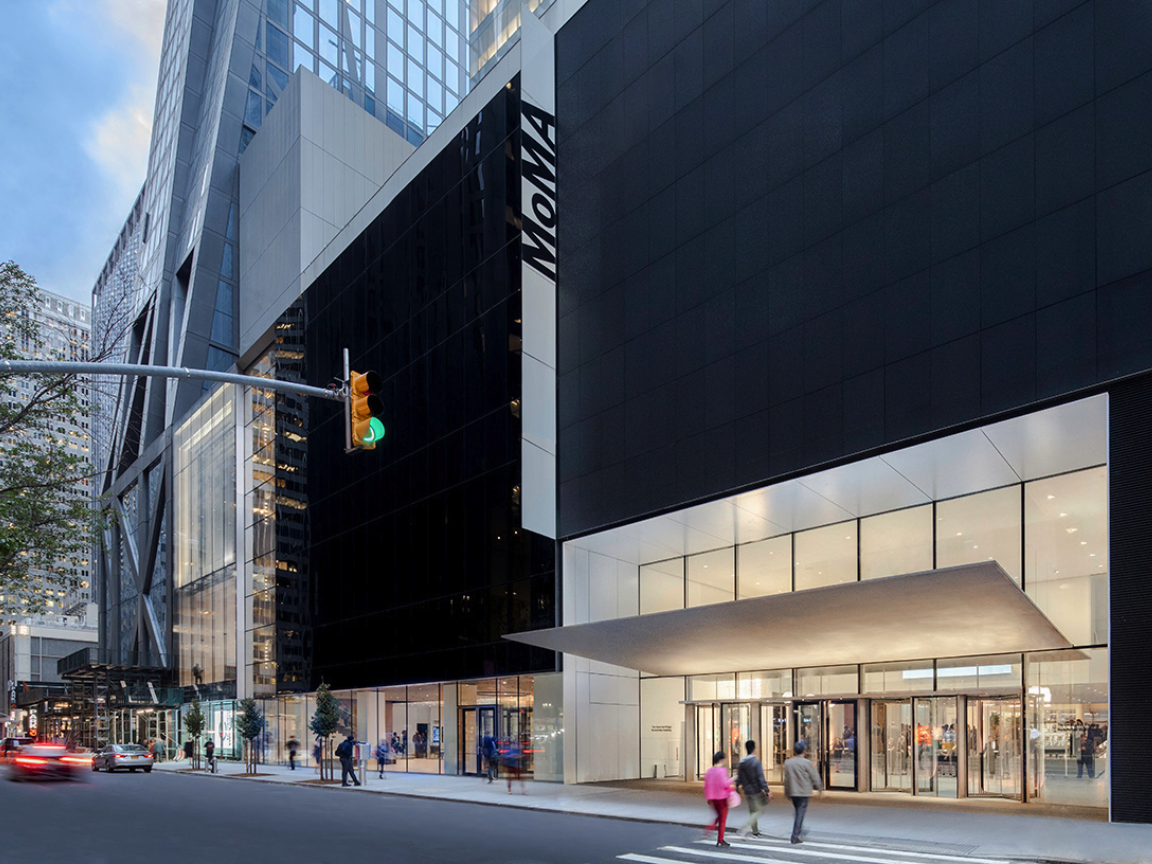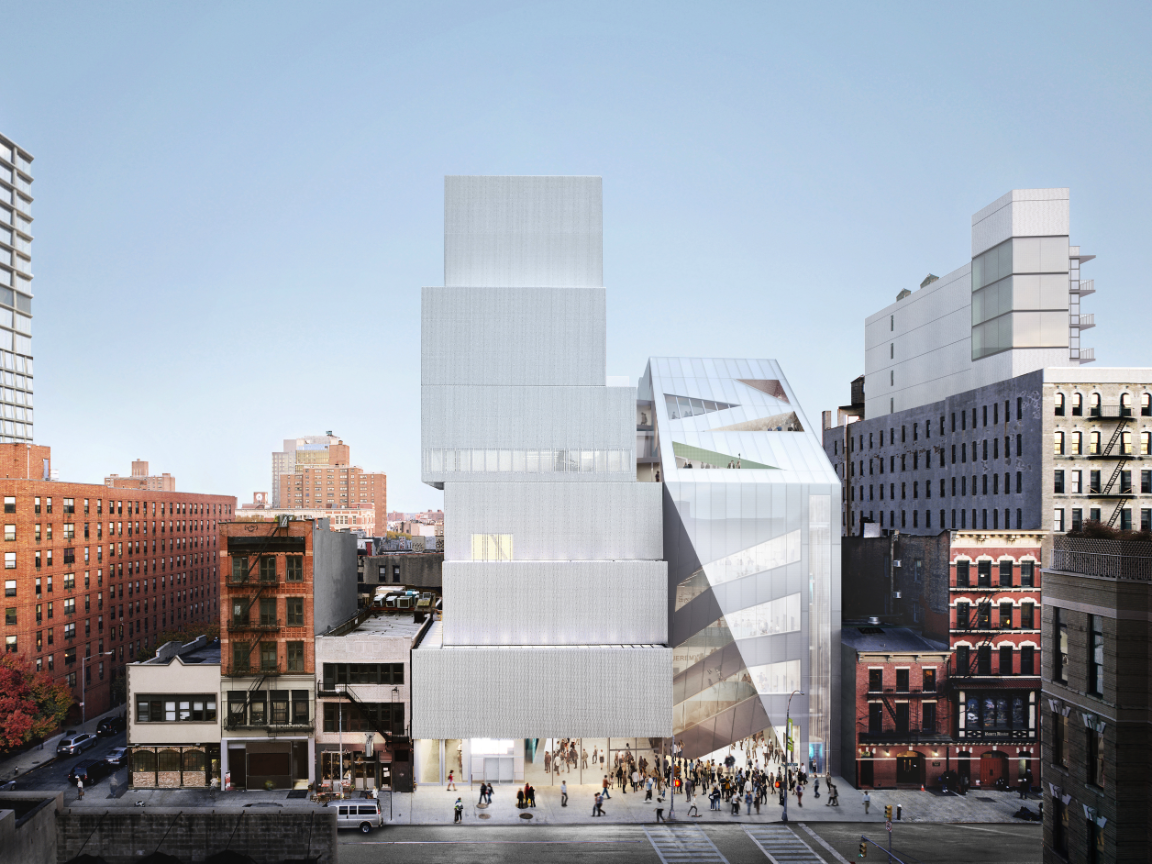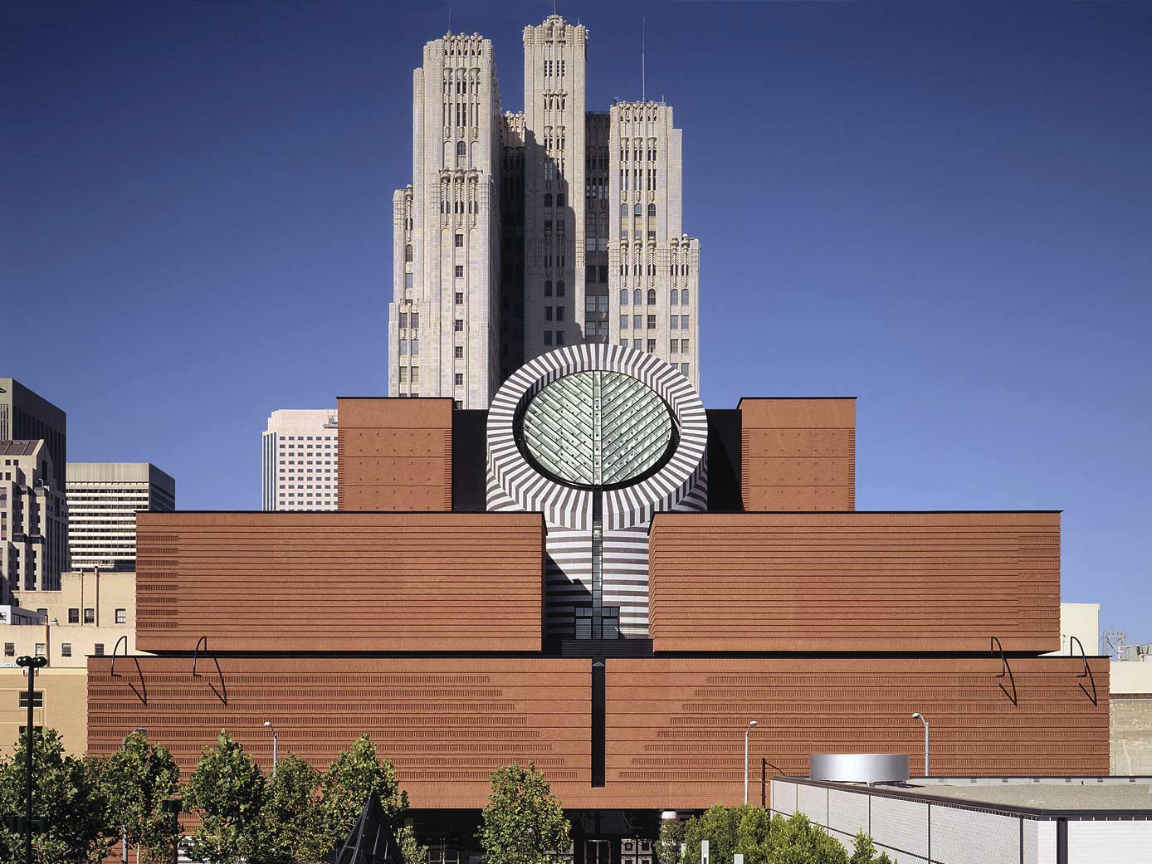As an expansive platform for art, thought, and action, The Luminary invites applications from creative practitioners based in North America for Process-As-Practice, a collaborative residency session to take place throughout 2022 and into 2023.
This residency supports the less visible and acknowledged spaces of research and process. If we require new ways of living and working, to quote Christina Sharpe, “We must become undisciplined. The work we do requires new modes and methods of research and teaching.” (Sharpe, In the Wake: On Blackness and Being, 13) The Luminary will create space for risk and failure, as this session intends to empower practitioners to experiment, build, test, and rebuild new administrative, curatorial, educational, and design methods together.
With the guidance and support of Stephanie Koch, Gallery Director of The Luminary, four residents will participate in a 10-month hybrid residency with equal focus on individual projects, collaborative work, and collective study. The residency will feature visiting guests from relevant artistic and cultural fields for conversations and workshops.
As the cohort meets via regular virtual meetings and an in-person intensive in St. Louis, this residency session will have support structures for public programs to share process as it emerges throughout 2022. The residency culminates in a cohort-determined presentation in 2023, to embody the lines of inquiry and values in the making of this public presentation. Through their work as an arts administrator, curator, educator, and designer, the cohort will exhibit the unexhibitable: process and practice.
Applications will be considered through February 1st for a residency start date in mid-May.
Inquiry
If we are to imagine new ways of creatively working, independently and collaboratively, we need to contend with the practical concerns of labor, in society and the arts. In addition to questioning the modes and methods in which we creatively organize, Process-As-Practice also asks:
Through engaging with our conditions and lived experiences as the basis of research, what concerns on the current state of work and labor emerge? Within the art world, how do we identify unethical labor practices and rebuild new models of being with art? What processes and tools do we need to do this work together and do so equitably?
Within administrative, curatorial, design, and educational methodologies, proposals for individual, research projects could include, but are not limited to automation and the future of work, the care crisis and the struggles over reproductive labor, the health and well-being of workers, solidarities and strategies within labor movements, sex worker rights, the contingency of illegible and invisible labors, states of insecurity and unpaid labor, economic disobedience, underpaid seasonal and migratory work, and the physical, intellectual, affective, and emotional labor all these positions carry.
While this inquiry centers on St. Louisan, Midwest, and U.S. experiences, research projects which extend across transnational, international, and comparative trajectories are also encouraged.
Residency Descriptions
Each applicant will select a methodological focus: Arts Administrator-In-Residence, Curator-in-Residence, Designer-in-Residence, or Educator-in-Residence.
The Arts Administrator-in-Residence will think beyond current institutional and policy structures to foreground power redistribution, models built on reciprocity, and support structures which offer an alternative to current unethical labor conditions, both within the arts and elsewhere.
The Curator-in-Residence will develop curatorial methods that move beyond identifying social inequities or representational formats as a means to support structural change. Through a relational practice—between artists and objects, space and time, partners and communities—they will experiment with curatorial strategies that do not reproduce the inequality they seek to transform.
The Educator-in-Residence will address issues of access through their pedagogical practice. Lack of access to education could be determined by, but not confined to race, religion, gender, sexual orientation, disability, geography, perceived intellectual ability, or income. As they critique current issues of access in the arts, they will research and develop programs that forefront equal participation in knowledge production.
The Designer-in-Residence will experiment with digital ways of communing and communicating diverse forms of process and knowledge. Through design tools dedicated to architecting complex systems, visualizing communications, and facilitating multidisciplinary collaboration, the aim is to build digital platforms which offer responsive, ethical, and engaging communication and programming.
Throughout 2022, each resident does this work through their independent research projects and collectively supported by their fellow residents and The Luminary to the end of building a new form of presentation. In addition to the above skills and interests, for productive collaboration built on trust, each resident must demonstrate a level of generosity, curiosity, emotional intelligence, and openness to work in generative discomfort.
Resources & Responsibilities
Each resident receives a $3000.00 research stipend for their individual project and a $1000.00 travel stipend. The travel stipend is to cover travel to 1) St. Louis for an in-person intensive at The Luminary with fellow residents to be scheduled for fall 2022 and 2) individual travel relevant to their research.
The Luminary also provides staff support for public programs which align with individual projects and collaborative study to emerge during the course of the residency.
The Luminary is proud to be a parent-friendly residency. With support from the Sustainable Arts Foundation, we can provide resources in the forms of additional funding to be used as the parent needs and a personalized environment for the unique needs of families. Within the application, self-identifying parents can request additional support.
In reciprocity, each resident will:
- Meet regularly and virtually with their cohort at a collectively-determined frequency, no less than once a month.
- Coordinate their schedule with fellow residents for an in-personal intensive in St. Louis in fall 2022
- Offer generosity, clarity, respect, and confidentiality to their fellow cohort members as well as an openness to difficult and complicated discussions
- Collaborate with their fellow cohort members and The Luminary on a public presentation (an exhibition, publication, or program series) to take place in 2023 which shares their research and process, offering new modes of dissemination, and engages the St. Louis community and national audience with care
Eligibility
The Luminary is dedicated to creating a space for collaborative, interdisciplinary, intergenerational. Practitioners based in North America, including and especially St. Louis, are encouraged to apply.
While we do review applications from MA, MFA, and Ph.D. students, we encourage these applicants to think about their capacity as this residency includes regular meetings with fellow residents and collaborative work, which requires generosity, time, and energy.
How to Apply and Selection Procedure
Applicants must apply via Submittable by February 1, 2022, at 11:59 PM CST. The application will request basic information, brief responses, questions on collaboration and practice, a research project proposal within the posed inquiry concerning labor, work samples either via a single PDF or an alternative work sample option.
For more information or to ask questions in regards to the residency process and accessibility, please contact Stephanie Koch at stephanie@theluminaryarts.com











